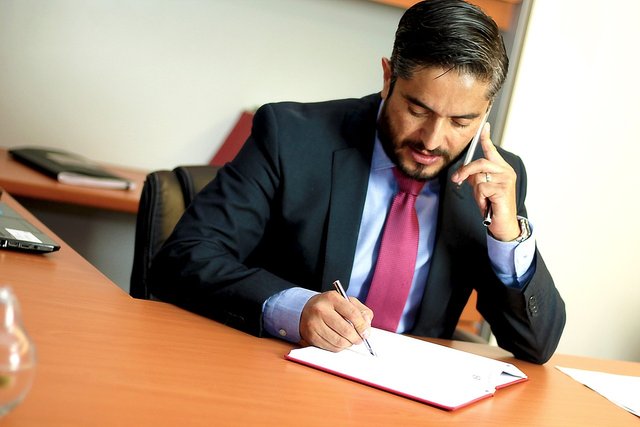
Commercial activity has been, throughout the centuries, linked to human activity, by virtue of the need to obtain satisfactory goods. Its evolution goes from barter as the first form of trade in a first stage, where the merchandise-commodity exchange takes place. Then the concept of money is introduced, in this stage the exchange is merchandise-money-merchandise, finally in the third stage, the exchange is money-merchandise-money, and the concept of accumulation is introduced, identifying it as one of the main causes of poverty. Therefore, the evolution of trade throughout history presents issues of great importance to understand the current configuration of trade.
According to Viciana (2011). The socioeconomic activity consisting of the purchase and sale of goods, whether for use, for sale or for transformation. It is the exchange or transaction of something in exchange for something else of equal value. By commercial or industrial activities we mean both the exchange of goods or services that are affected through a merchant or trader. The merchant is the natural or legal person who engages in commerce on a regular basis, such as trading companies. In other words, trade is the buying and selling, commercial activities is the person or persons involved in the exchange and this can be; individual, collective or social. Likewise, societies are the product of the social and intellectual evolution of man, which are organized for the achievement of a common purpose, a situation that may or may not be lucrative and can also be regulated by the world of law.
Garringuez quoted by Castillo (2011) defines law as that which regulates the acts of commerce pertaining to the exploitation of organized mercantile industries (proper acts of commerce) and those performed occasionally by merchants and non-merchants (improper acts of commerce), which the legislator considers mercantile, as well as the status of the merchant or individual and social mercantile entrepreneur and the states of abnormality in the fulfillment of their obligations. According to the foregoing, the evolution of commercial companies is in accordance with the development of commerce and industry, and it is through these that development is achieved either in the capitalist or in the socialist sphere, all these commercial activities are regulated by commercial law, applied through the regulatory rules of each country.

Source
Likewise, it arises from the need that arose between people to be able to develop business jointly with certain security, not leaving everything to the honesty and good will of the person with whom an association is to be undertaken. On the other hand, according to Jiménez (2004), the commercial company is one that exists under a name or corporate name through the agreement of wills of a group of people called partners, who join their efforts and capital for the realization of a common purpose of an economic nature with the purpose of profit. In effect, the word corporation in Venezuela is used in two senses, as a contract and as a legal entity. As a contract, the company designates the agreement entered into by the partners, and as a juridical person, it designates the grouping that arises from that contract, that is to say, a juridical person different from that of the members that comprise it.
However, the Venezuelan Commercial Code does not establish a corresponding number of partners, it only states that there must be at least two or more depending on the capital stock contributed, the number of shares set forth in the articles of incorporation and the type of company. The partners are the individuals or legal entities that make contributions to the company. Therefore, it could be said that in Venezuela only multi-person partnerships are developed, where the obligations and rights are shared according to the capital contribution. Therefore, the main obligation of a partner is to make its contribution, which may consist of money, in kind or in the industry itself. According to Art. 208 and in accordance with Art. 1.660 C.C., the contributed goods become property of the partnership, unless otherwise agreed; and the contributing partner is obliged to clean up.
Likewise, among its rights are the right to participate in the profits or benefits that the partnership may produce in the performance of its commercial activities; such anticipation should be proportional to its social contribution and to the provisions agreed upon in the incorporation document of the partnership when the contract was executed. These persons, who join their capital and comply with the legal procedure established to form a mercantile corporation, acquire a legal personality defined as the quality of an entity different from the natural person or persons that form it, if it is a corporation.
It is important to emphasize that the classic forms of incorporation have been updated, that is to say, modernized in several foreign legislations, in such a way that the emergence of the sole proprietorship has been a great advance for those entrepreneurs who wish to incorporate a small business. Although the Venezuelan Code of Commerce reflects the figure of a sole proprietorship, these are not constituted as a company, simply according to article 26, "A merchant who has no associate or who has only one participant, may not use any other signature or trade name than his last name with or without the first name. He may add to it whatever he believes useful for a more precise designation of his person or his business; but he may not make any addition to it that would lead to believe in the existence of a partnership.
That is to say that in Venezuela there is only the meaning of a company with only one owner, but not a company with only one partner, this type of company has no restrictions at the time of delivering its contributions, either in cash, in kind or both, with respect to amounts or percentages, as established by the Venezuelan Commercial Code. Therefore, the sole proprietorship constitutes another alternative to create a corporation, with the characteristic that it is founded with only one partner; however, it is governed under the same principles of the already known corporations and the importance of this type of corporation is that it is a sole proprietorship.
In fact, the sole proprietorship gives the possibility to small businessmen to form a company assuming a legal personality, with the same rights and obligations of a multi-person company. In cases where the company is formed by two or more partners and it subsequently becomes the property of a sole partner, operating like any other company, known as a supervening company, the character of a sole proprietorship and the identity of the sole partner must be recorded in the Commercial Register.

- Castillo (2011). Implementación de las compañías anónimas como instrumento para optimizar el sistema productivo en la comuna san marcos de la provincia de Santa Elena [Tesis en línea] Universidad Estatal Península de Santa Elena, Ecuador. Consultada el 20 de diciembre de 2012 en: repositorio.upse.edu.ec:8080/.../Tesis%20Pedro%20Javier%20Castillo %2.
- Jimenez. B. (2004). Diccionario de Administración y Finanzas [Online book] accessed January 02, 2015 at : https://books.google.co.ve/books?isbn146335.
- Viciana, A. (2011). Organization of Sales Processes [Libro en línea]. Accessed 06 January2015 en.google.co.ve/books?id=La+actividad+Socioe+viciana&source.


this gives more insight into what to expect if you want to collaborate on a project with another entity in Venezuela than the sole proprietorship in Venezuela that your post title reads.
Downvoting a post can decrease pending rewards and make it less visible. Common reasons:
Submit
Hi @lebey1, thanks for your suggestion, I have already made a modification I hope and now there is a relationship with the title of the post.
Downvoting a post can decrease pending rewards and make it less visible. Common reasons:
Submit
OKAY . GREAT
Downvoting a post can decrease pending rewards and make it less visible. Common reasons:
Submit